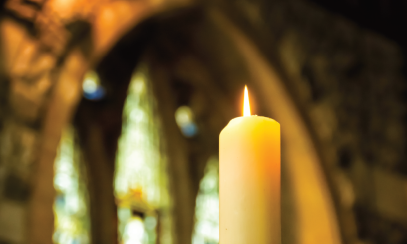Dear Fr. Joe: Did the priest scandals prove that a celibate priesthood is unrealistic?
I say this with all the sincerity I have: The time of the priest scandal was, and I think always will be, among the worst times of most priests’ lives. Its effects continue today as we struggle to help those who were wounded heal, to re-establish our moral authority, our trust in the bishops and the image of priests.
What did it teach us? So much, and yet we have so much more to learn. I believe it taught us to, in the words of one of my heroes, “Listen to the voice of the shepherd before we listen to any other voice.” It taught us that we must always be open with our failings and faults. It taught us that despite its incessant mocking or attacking of Christianity, society does hold us to a higher standard.
One of the other results of this crisis is the fact that we are asking good questions, such as yours: Does the scandal teach us that celibate priesthood doesn’t work or is unrealistic?
Mental health professionals say “no.” Celibacy can be a healthy choice for a fulfilling and spiritually enriched life.
The issue for most isn’t just that minors were abused, but that the church authorities didn’t deal with it properly and in a spirit of openness.
Be this as it may, priestly celibacy is definitely being questioned and even attacked. I think this is a good time to explain some of the reasons why we priests are celibate.
Father Cantalemessa was Pope John Paul II’s private preacher. He gave a retreat a couple of years ago for the priests of the Lansing Diocese. In that retreat, he offered us some beautiful reflections on priestly celibacy. I’ll try to represent them well here.
First of all, priestly celibacy is to be seen as a prophecy. In Matthew 19, verses 10–13, Jesus has just answered a question about divorce:
[His] disciples said to him, “If that is the case of a man with his wife, it is better not to marry.” He answered, “Not all can accept [this] word, but only those to whom that is granted. Some are incapable of marriage because they were born so; some, because they were made so by others; some, because they have renounced marriage for the sake of the kingdom of heaven. Whoever can accept this ought to accept it.”
Here, Jesus is reminding us that some people can and should renounce marriage for the sake of heaven.
Priestly celibacy can be a prophecy to the world; we priests are called with our celibacy to literally use our hearts and even our sexuality to proclaim to the world that all this is temporary, that the kingdom of heaven is, in fact, at hand. We tie ourselves to nothing on earth, so that we can assist other people and ourselves in focusing on heaven.
Another reason we priests embrace celibacy is that, in it, we imitate Christ, who did not marry. I know there is a lot of popular myth that attempts to convince us otherwise, but if you take a look at the Gospels and the letters of the apostles, you see accurate sources of information that aren’t speculating through culturally biased eyes, written by people who were actually there. John reminds us in I John, chapter 1 that he was there and is telling us the truth. In this case, we know Jesus wasn’t married and thus was celibate. With our priesthood, we priests are connecting ourselves with Jesus in a special way.
There’s a lot more, but I’m running out of space. Let me just say that I thank God for the gift of priestly celibacy. I feel so honored in my heart to be a priest. I know that people are struggling with trusting the priesthood right now and I encourage you to see us as you see yourselves – faulty men who are doing their best to love and serve God and God’s people.
I thank Jesus with all my heart for letting me be a priest.
Enjoy another day in God’s presence!



